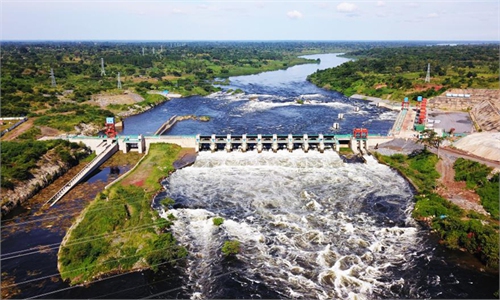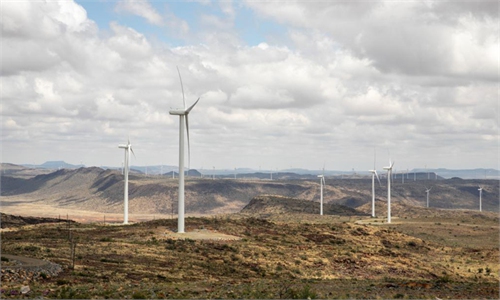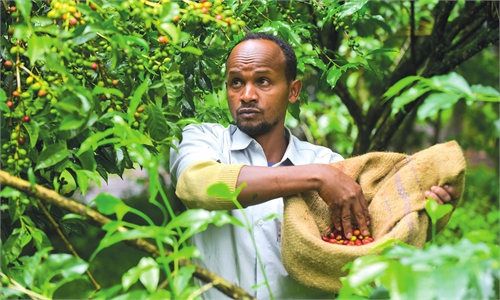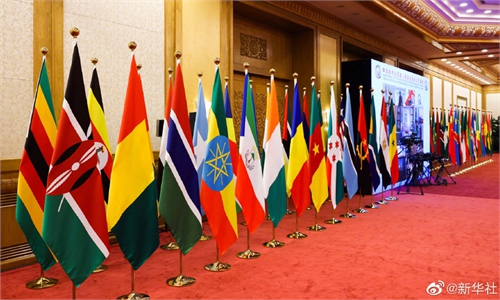China to further help Africa’s vaccination drive, shielding continent from Omicron
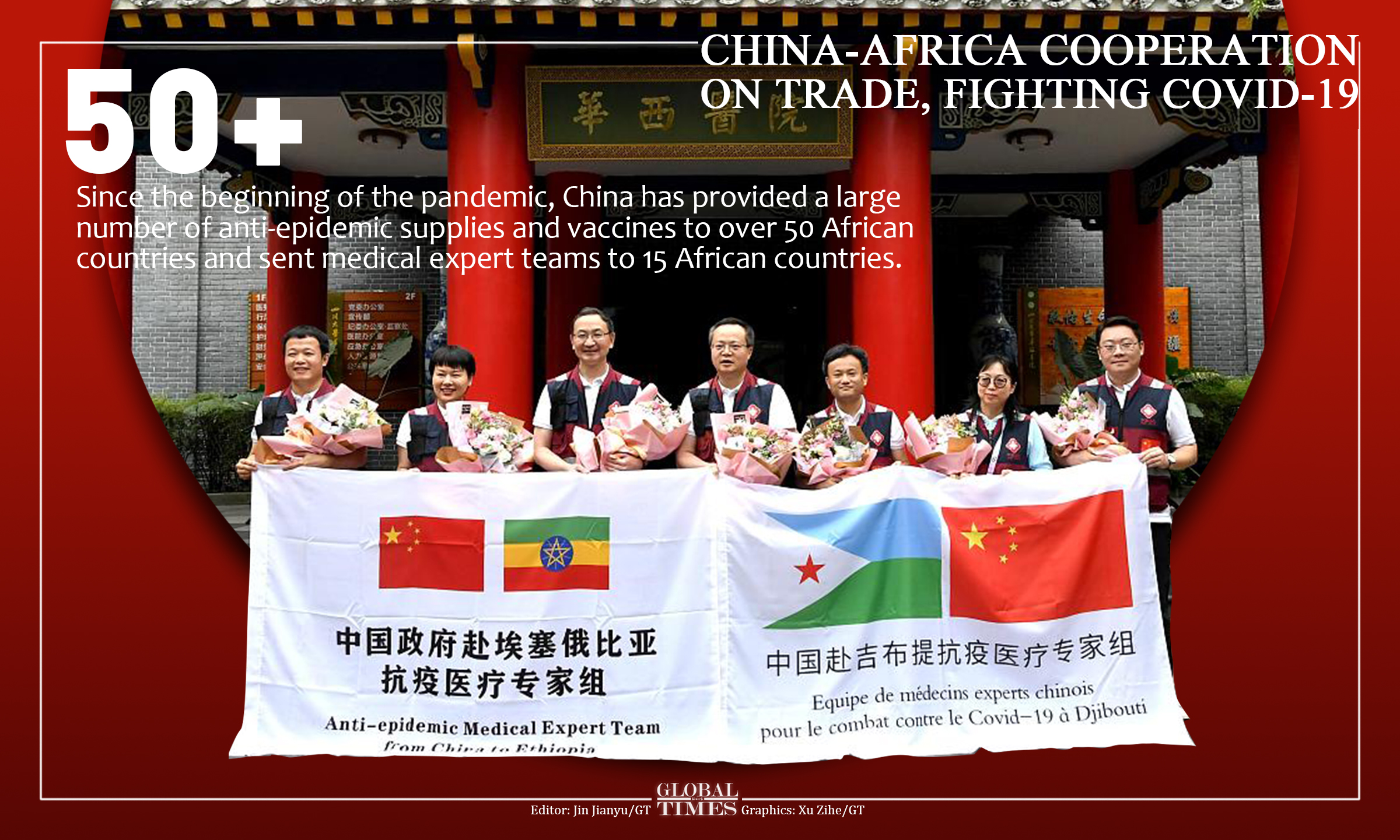
China-Africa cooperation on trade, fighting COVID-19. Graphic: Xu Zihe/GT
China has vowed to further help African countries boost their vaccination drive, which Chinese observers said could significantly strengthen the continent's immunological barrier against the COVID-19 pandemic and tackle serious global vaccine inequality. The emergence of the new variant Omicron, which was first detected in South Africa, once again highlights the dire consequences of vaccine inequality in developing countries, especially in Africa, where only 6 percent of its population have been fully vaccinated.
China is also expected to further step up its efforts to help African countries with vaccine production, meeting the continent's core needs with cost-efficient methods for producing inactivated vaccines that are more suitable for these countries than the West's high-priced and complicated mRNA vaccines, analysts said.
In order to help vaccinate 60 percent of the African population, a goal set by the African Union, China will provide African countries another 1 billion doses of COVID-19 vaccine with 600 million doses offered for free and the rest offered through various means including joint production by Chinese and African enterprises, President Xi Jinping announced in a keynote speech delivered via video link at the opening ceremony of the Eighth Ministerial Conference of the Forum on China-Africa Cooperation (FOCAC) in Beijing on Monday.
On Monday, more countries barred entry of foreigners as the WHO said Omicron is likely to spread internationally, bringing "severe consequences" in some areas. Japan said on Monday it would close its borders to foreigners from Tuesday. Two days ago, Israel announced a ban on entry of all foreigners, making it the first country to shut its borders, Reuters reported.
Omicron, first identified in South Africa, has been found in Australia, Belgium, Botswana, Britain, Canada, Denmark, France, Germany, China's Hong Kong, Israel, Italy, the Netherlands and Scotland, Reuters said on Monday.
Chinese analysts said that new variant tends to emerge in regions with relatively poor epidemic response capabilities, making regions like Africa a weak link in the global COVID-19 battle, and improving vaccination rates is critical for the continent and the whole world to shake off COVID-19 as soon as possible.
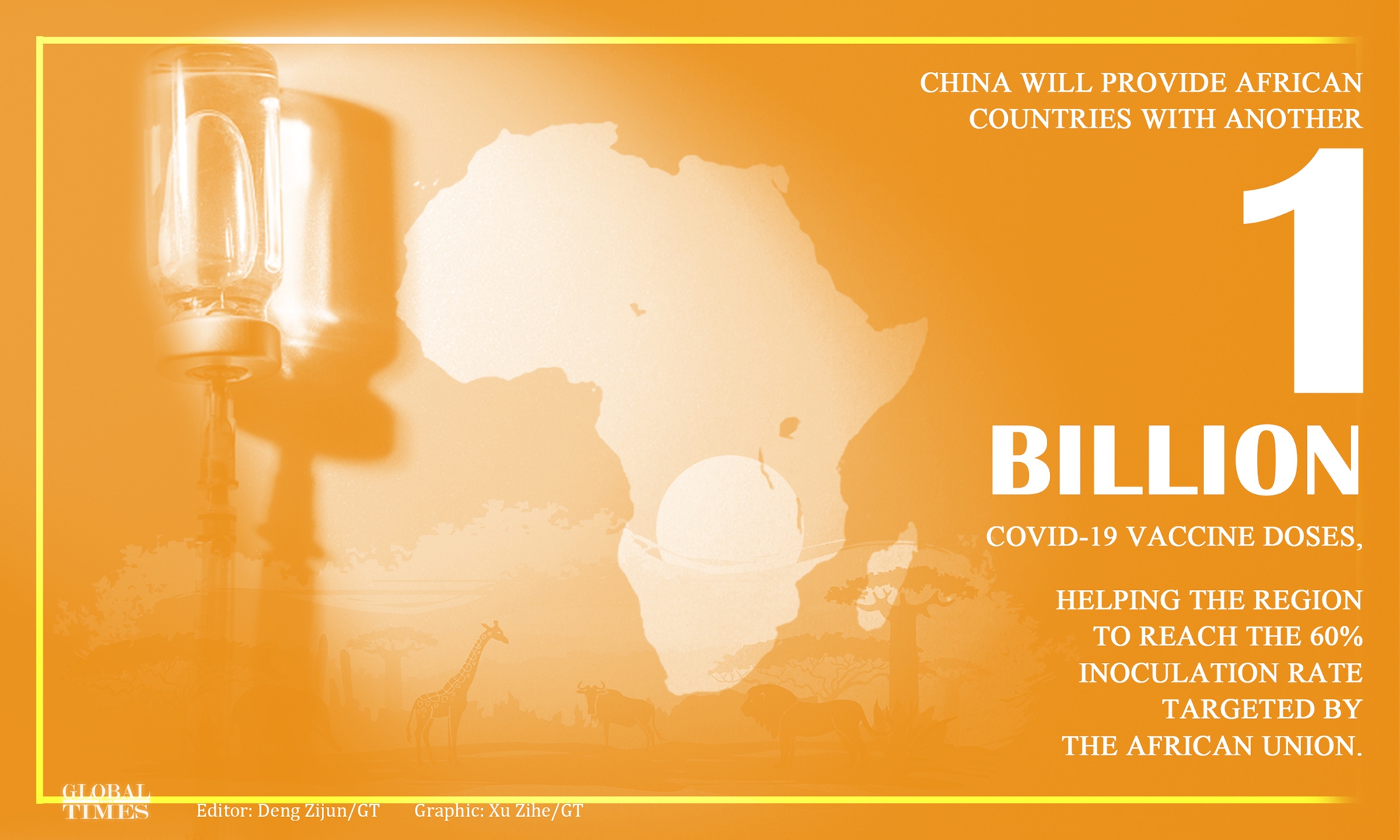
China will further provide 1 billion COVID-19 vaccines to Africa Graphic: Xu Zihe/GT
On Sunday local time, Chinese State Councilor and Foreign Minister Wang Yi said while meeting with the Senegalese Foreign Minister Aissata Tall Sall that China will continue to provide COVID-19 vaccines to Senegal and support its efforts to become West Africa's vaccine production center. China is willing to work with Senegal in vaccine research and development, and virus detection, Wang said.
Observers said that the help provided by Chinese inactivated vaccine firms for Senegal to build West Africa's vaccine production center will probably come in the form of offering vaccine concentrate, so that local factories can then inject and pack the vaccine on their production lines.
They said that with China's help in both vaccine production and techniques for localizing vaccine manufacturing, Africa is expected to see its vaccination rates greatly improved and its immunological barrier against the pandemic strengthened.
China was the first country to provide vaccines to developing countries in need and the first country to cooperate with developing countries on vaccine production. In Africa, Egypt has become the first regional country to be able to produce vaccine with the help of Chinese vaccine producers, Xinhua News Agency reported.
Chinese vaccine manufacturer Sinopharm told the Global Times on Monday that the company has offered more than 100 million doses of COVID-19 vaccines to more than 40 African countries so far, and many African government leaders took the lead in receiving the Sinopharm vaccine.
Zimbabwe's Victoria Falls started to inoculate its residents with the Sinopharm vaccine in March, and has become the first city in Zimbabwe to reach herd immunity through vaccinations, according to Sinopharm.
Some African scholars also welcomed and expected China's vaccine aid to help the continent overcome the pandemic.
Adhere Cavince, a Kenyan scholar of international relations with a focus on China-Africa relations, told the Global Times on Monday that China has been a strong partner for the continent by sending large consignments of essential commodities needed in the fight against the pandemic.
"With a record vaccination rate at home and strong vaccine manufacturing capacity, China can help many African countries access COVID-19 vaccines. This is the only rational way out of the pandemic for Africa and the rest of the world," he said.
Just five African countries, less than 10 percent of Africa's 54 nations, are projected to hit the year-end target of fully vaccinating 40 percent of their citizens, the WHO said.
Zhuang Shilihe, a Guangzhou-based immunologist, told the Global Times on Monday that before scientists determine the protection rate of current vaccines against the new variant, vaccines are still the most effective way to shield people from the pandemic.
South Africa was the region where the Omicron variant was first detected, and India was where the Delta variant was first reported, indicating that new variants tend to emerge in regions with relatively weak pandemic response strategies and low vaccination rates, Jiang Chunlai, a professor from Jilin University's School of Life Sciences, told the Global Times on Monday.
Experts said if the international community fails to help Africa improve vaccination rates, the rest of the world will become as vulnerable as Africa in facing new possible variants.
A Beijing-based immunologist told the Global Times on condition of anonymity that more dangerous variants could emerge if the virus mutates in countries with low vaccination rates.
Africa has fully vaccinated 77 million people, just 6 percent of its population. In comparison, over 70 percent of high-income countries have already vaccinated more than 40 percent of their populations, the WHO said on October 28.
WHO said in a link it sent to the Global Times on Monday that current vaccines remain effective against severe disease and death, and it's vitally important that inequities in access to COVID-19 vaccines are urgently addressed to ensure that vulnerable groups everywhere receive their first and second doses, alongside equitable access to treatment and diagnostics.
Chinese analysts criticized US-led Western countries for hoarding vaccines that resulted in the emergence of the Omicron variant, saying it's a lesson for developed countries and they should take immediate actions to help Africa.
More suitable for Africa
Amid China's vaccine help for Africa, the US has also reinforced its rhetoric on helping African countries to produce vaccines locally.
US Secretary of State Antony Blinken wrapped up his African tour a few days ago, and stressed US' efforts to help Senegal manufacture its own vaccines during his stay in the country.
Moderna said it will invest up to $500 million in a "state of the art facility" to produce mRNA vaccines in Africa, though the exact location has not been decided, the company said in October.
Chinese analysts said that for African countries, localizing production of COVID-19 vaccines was their core need, and although both China and the US offered help, it's difficult for the US to promote its vaccine manufacturing techniques in Africa due to the high cost of its methods.
"On the contrary, China's cost-effective manufacturing techniques are most suitable for Africa, and China would also help countries establish their own industrial systems," Liu Haifang, executive director of the Beijing-based Center for African Studies and associate professor at the School of International Studies of Peking University, told the Global Times.
Inactivated vaccine techniques are more mature, and local factories could easily inject and pack the vaccine concentrate received from China, Jiang said.


